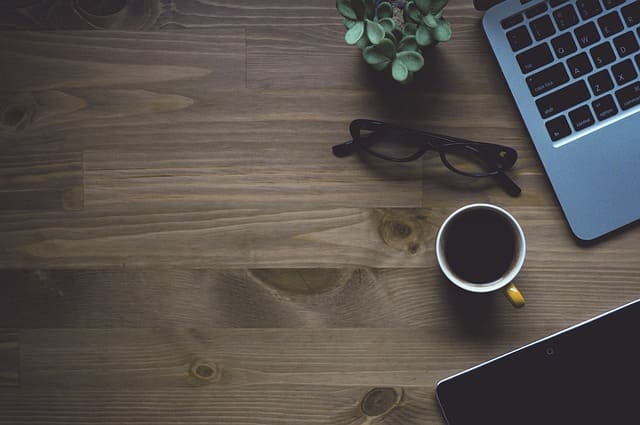In this comprehensive guide, we’ll explore the complex relationship between caffeine, particularly from coffee, and its impact on sleep when consumed at night. Understand why this topic side effects of drinking coffee at night is crucial for your well-being and get insights into how caffeine might be affecting your sleep quality.
Side effects of drinking coffee at night.
Difficulty falling asleep:
Coffee contains caffeine, which is a stimulant that can interfere with sleep and make it harder to fall asleep.
Disrupted sleep patterns:
Consuming coffee close to bedtime can disrupt your sleep cycle, leading to fragmented and restless sleep.
Increased urination:
Coffee is a diuretic, meaning it increases urine production. This can result in more frequent trips to the bathroom during the night.
Digestive issues:
Coffee can stimulate the production of stomach acid, which may lead to heartburn, acid reflux, or other digestive discomfort.
Increased anxiety or restlessness:
The caffeine in coffee can increase feelings of anxiety or restlessness, especially if consumed in the evening when the body is naturally winding down.
It’s generally recommended to avoid consuming coffee or any other caffeinated beverages in the evening to promote better sleep quality.
Drinking Coffee at Night: Pros and Cons
Pros:
Increased Alertness and Productivity: For many, drinking coffee at night can provide a much-needed boost of alertness, especially for those working late or studying for exams. It can enhance focus and concentration, making it easier to complete tasks.
Social and Cultural Enjoyment: Coffee drinking, even at night, can be a social activity, a way to unwind after a long day, or a cultural ritual. This aspect of coffee consumption can have positive effects on mood and mental well-being.
cons:
Disrupted Sleep Patterns: The most significant downside to drinking coffee at night is its potential to disrupt sleep. Caffeine can make it harder to fall asleep and may decrease the overall quality of sleep.
Increased Anxiety and Restlessness: For some, consuming caffeine in the evening can lead to feelings of anxiety, jitteriness, and restlessness, which are not conducive to relaxation and restful sleep.
Potential for Dependence: Regularly consuming caffeine late in the day can lead to dependence, where more caffeine is needed to achieve the same alertness, leading to a cycle of poor sleep and daytime fatigue.
Caffeine’s Half-Life and Its Implications for Sleep

Caffeine’s half-life — the time it takes for half of the caffeine to be eliminated from your body — plays a crucial role in how it affects sleep. On average, caffeine has a half-life of about 5 to 6 hours in adults, though this can vary based on factors like age, liver function, and other individual differences.
- Delayed Sleep Onset: If you consume caffeine close to bedtime, you’re likely to still have a significant level of caffeine in your system when you try to sleep. This can delay the time it takes to fall asleep.
- Reduced Sleep Quality: Even if you can fall asleep, the presence of caffeine in your system can reduce the quality of your sleep, leading to a less restorative rest.
- Variability Among Individuals: Some people may metabolize caffeine faster than others, meaning the same amount of caffeine consumed can have different effects on different people’s sleep.
Sleep Disorders and Caffeine Intake
The relationship between sleep disorders and caffeine intake is complex and bidirectional. People with certain sleep disorders may be more affected by caffeine, while excessive caffeine consumption can exacerbate or even contribute to the development of sleep disorders.
- Insomnia: Caffeine can increase the time it takes to fall asleep and decrease total sleep time, making it particularly problematic for individuals with insomnia.
- Sleep Apnea: Although caffeine does not directly cause sleep apnea, it can exacerbate symptoms of daytime sleepiness, leading to increased caffeine use, which then can further disrupt sleep patterns.
- Restless Leg Syndrome (RLS): Some studies suggest that caffeine may worsen the symptoms of RLS, contributing to difficulties in falling and staying asleep.
For individuals with sleep disorders, or those who are sensitive to the effects of caffeine, it is generally advised to limit caffeine intake, especially in the hours leading up to bedtime. Consulting with a healthcare provider for personalized advice can be beneficial in managing both caffeine consumption and sleep health.
How to Balance Caffeine and Good Sleep Hygiene
Balancing caffeine intake with maintaining good sleep hygiene requires understanding both your personal sensitivity to caffeine and general sleep principles. Here are some tips:
Limit Caffeine Intake in the Afternoon and Evening: To avoid sleep disturbances, try to avoid consuming caffeine at least six hours before bedtime. This allows enough time for its effects to diminish.
Monitor Your Total Daily Caffeine Intake: Keep your caffeine intake within recommended limits (generally around 400 mg per day for most adults) and be aware of all sources of caffeine, not just coffee.
Understand Your Caffeine Sensitivity: People metabolize caffeine differently. If you are highly sensitive, you might need to limit caffeine even more strictly.
Maintain a Regular Sleep Schedule: Consistency in your sleep schedule helps regulate your body’s internal clock, which can be disrupted by irregular caffeine consumption.
Create a Relaxing Bedtime Routine: Engage in relaxing activities before bed, like reading or meditating, to signal to your body that it’s time to wind down.
Optimize Your Sleep Environment: Ensure your sleeping area is quiet, dark, and cool, and avoid using electronic devices before bed.
Alternatives to Nighttime Coffee Consumption
If you’re looking to reduce your nighttime caffeine intake, consider these alternatives:
- Herbal Tea: Many herbal teas, like chamomile or peppermint, are naturally caffeine-free and can be a relaxing pre-bedtime ritual.
- Decaffeinated Coffee: If you enjoy the taste of coffee, decaffeinated varieties can be a good option, though note that they may still contain small amounts of caffeine.
- Warm Milk or Golden Milk: A warm glass of milk or golden milk (milk with turmeric and other spices) can be soothing and help signal to your body that it’s time for sleep.
- Fruit-Infused Water: Hydrating with a refreshing glass of fruit-infused water can be a healthy and hydrating choice.
- Non-Caffeinated Herbal Supplements: Some herbal supplements, like valerian root or melatonin, might help promote sleepiness and are often used as sleep aids.
Myths and Facts About Caffeine and Sleep
Myth: Everyone is affected by caffeine in the same way.
Fact: Individual responses to caffeine vary greatly due to genetics, tolerance, and lifestyle factors.
Myth: Caffeine causes insomnia.
Fact: While caffeine can disrupt sleep and exacerbate symptoms of insomnia, it’s not a direct cause of this sleep disorder.
Myth: Drinking water can dilute caffeine in your system and lessen its effects.
Fact: While staying hydrated is important, water doesn’t counteract the effects of caffeine. Only time can effectively reduce caffeine’s presence in your system.
Myth: Decaffeinated coffee is completely caffeine-free.
Fact: Decaffeinated coffee still contains small amounts of caffeine, although much less than regular coffee.
Myth: Caffeine before bed only affects your ability to fall asleep.
Fact: Caffeine can not only delay sleep onset but also impair sleep quality, affecting the total sleep time and the time spent in different sleep stages.
By understanding these nuances, you can better manage your caffeine consumption to ensure it doesn’t negatively impact your sleep quality and overall health.
Key Takeaways
- Understand Your Limit: Not everyone metabolizes caffeine the same way. Know your threshold.
- Timing Matters: Avoid caffeine late in the day to prevent sleep disturbances.
- Quality Over Quantity: Moderate your caffeine intake for better overall health and sleep.
- Know the Alternatives: Explore other beverages or activities that can replace late-night coffee.
- Stay Informed: Distinguish between myths and facts about caffeine and sleep.
This comprehensive guide aims to provide you with a nuanced understanding of how caffeine, especially when consumed at night, can affect your sleep, and offers strategies for managing your caffeine habits for better overall health and well-being.
Q: Can drinking coffee before bed disrupt sleep?
A: Yes, drinking coffee before bed can disrupt sleep as caffeine has a stimulating effect that can make it difficult to fall asleep and negatively impact the quality of sleep.
Q: How long does caffeine affect sleep?
A: The effects of caffeine on sleep can last for several hours, with a half-life of about 3-5 hours. This means that it can take up to 10 hours for the caffeine to be fully eliminated from the body.
Q: What is the recommended dose of caffeine to avoid affecting sleep?
A: It is recommended to limit caffeine intake to no more than 200-400 mg per day and to avoid consuming caffeine close to bedtime to minimize its impact on sleep.
Q: Is it bad to drink coffee late at night if you are sensitive to caffeine?
A: Yes, it is not advisable to drink coffee late at night, especially for individuals who are sensitive to caffeine, as it can significantly disrupt their ability to fall asleep and have a restful night’s sleep.


Leave a Reply